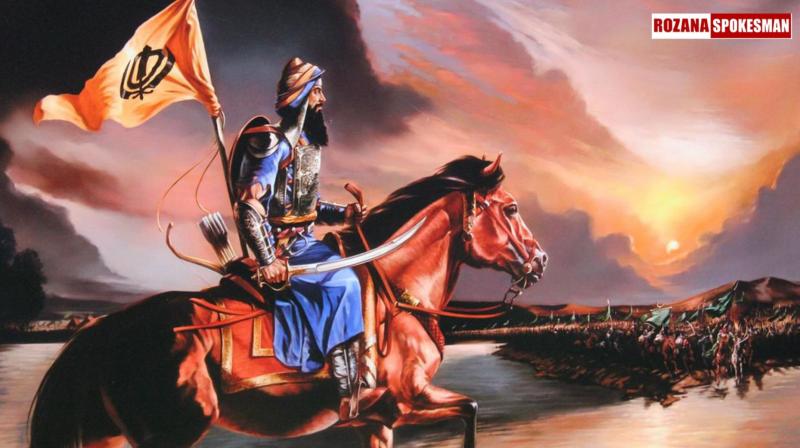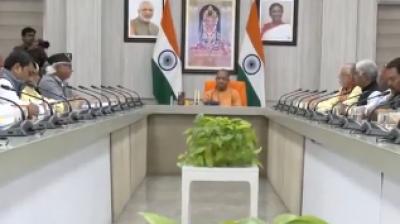
Baba Banda Singh Bahadur is credited with leading one of the most significant agrarian uprisings in Punjab.
Who was Baba Banda Singh Bahadur? Baba Banda Singh Bahadur (16 October 1670 – 9 June 1716), born Lachhman Dev, also known as Madho Das Bairagi, is remembered as one of the greatest Sikh warriors and a revered martyr of the Khalsa Army. Hailing from the Jammu region, he left an indelible mark on Sikh history through his relentless struggle against Mughal oppression.
During a time when the Mughals exercised widespread tyranny, Baba Banda Singh Bahadur’s bold resistance shook the foundations of their empire. Though his confrontation with the Mughal administration in northern India was relatively brief, it was marked by immense strength and vigor, creating ripples of fear throughout the Mughal establishment.
Baba Banda Singh Bahadur is credited with leading one of the most significant agrarian uprisings in Punjab. His efforts laid the groundwork for future Sikh military organizations, such as the Dal Khalsa and the Sikh Misls, ultimately leading to Maharaja Ranjit Singh's capture of Lahore in 1799 and the establishment of the Sikh Kingdom of Punjab. This marked the end of a dark chapter in India's history, bringing hope and strength to the region. (Who was Baba Banda Singh Bahadur?)
Born into a Minhas Rajput family on October 16, 1670, in Rajouri, Jammu, Lachhman Dev showed early signs of vigor and enthusiasm. His childhood was filled with activities such as wrestling, horseback riding, and hunting. However, an incident during a hunting trip changed his life forever. After he shot a doe, he was deeply moved by the sight of the dying animal and her unborn fawn. This traumatic experience triggered a profound transformation in Lachhman Dev’s life.
Seeking spiritual solace, he left his home and embraced a reclusive lifestyle. His spiritual journey began when he met Bairagi Sadhu Janaki Das, who took him as a disciple and renamed him Madho Das. Together with the Sadhus, Madho Das traveled through northern India, eventually settling in Nanded (modern-day Maharashtra) on the banks of the Godavari River, where he built a hut to meditate and connect with the divine.
This humble warrior-saint’s journey from Lachhman Dev to Baba Banda Singh Bahadur is a testament to the power of spiritual awakening and the strength of purpose. His legacy lives on in the Sikh struggle for justice and equality, and his martyrdom remains a symbol of courage in the face of oppression. (Who was Baba Banda Singh Bahadur?)














